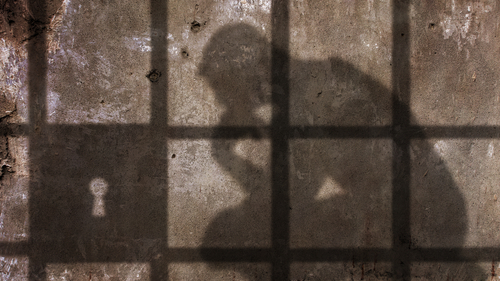Illinois will make history as result of state supreme court decision on cash bail law

The Illinois Supreme Court on Tuesday upheld a state law eliminating cash bail. Illinois will now become the first state in the nation to eliminate cash bail when the new law takes effect Sept. 18. Image from Shutterstock.
The Illinois Supreme Court on Tuesday upheld a state law eliminating cash bail.
Illinois will now become the first state in the nation to eliminate cash bail when the new law takes effect Sept. 18, the Chicago Tribune reports.
The law is the Safety, Accountability, Fairness and Equity-Today Act, known as the SAFE-T Act in shortened form. The cash bail provisions go beyond reforms enacted in other states, the New York Times reports.
The Illinois Supreme Court’s 5-2 opinion rejected three arguments based on the Illinois Constitution: that the law violated the bail clause, that it violated the crime victims’ rights clause, and that the legislature took on the role of the judiciary in violation of separation of powers.
The bail clause doesn’t even mention monetary bail, and it “strikes a finely constructed balance” between the interests of criminal defendants in pretrial release and the state in ensuring appearance for trial, the state supreme court said.
The victims’ rights clause also does not mention monetary bail, the Illinois Supreme Court said. Besides, the new law does take the rights of crime victims into account by requiring courts to consider the safety threat posed by release when evaluating whether to hold a defendant before trial.
And the legislature has long regulated the bail system, the Illinois Supreme Court said.
“The Illinois Constitution of 1970 does not mandate that monetary bail is the only means to ensure criminal defendants appear for trials or the only means to protect the public,” the state supreme court majority said. “Our constitution creates a balance between the individual rights of defendants and the individual rights of crime victims. The act’s pretrial release provisions set forth procedures commensurate with that balance.”
Two dissenting judges argued that the end of cash bail violates the state constitutional rights of crime victims.
The ABA House of Delegates adopted resolutions in 2017 that favor release without bail unless public safety warrants detention.
The Illinois law creates a default rule that all people charged with an offense are eligible for pretrial release on personal recognizance, subject to conditions of release set by a judge that may include electronic monitoring or home supervision. Defendants charged with misdemeanors or other minor offenses will be released and will not be subject to pretrial conditions.
The court decision, the Chicago Sun-Times, the Chicago Tribune and the Chicago Reader explain how the new system will work when the law takes effect.
After defendants appear for the initial conditions hearing, prosecutors can seek detention of defendants charged with certain felonies. There will be a hearing in which the defense can call witnesses. Until then, the defendant can be held in custody.
The judge will then decide whether to release the defendant or keep the person in custody pending trial, considering whether the defendant is a danger to the public or a flight risk. The judge may also impose release conditions, such as electronic monitoring.
Cook County Public Defender Sharone Mitchell said during a press conference judges will make decisions on pretrial detention after “robust and individualized” hearings, according to the Chicago Tribune.
“This means that the decision on who goes to jail or who doesn’t will no longer rely on how much money your mother has or your partner has or your grandmother has or your church has or you have,” Mitchell said.
Illinois Attorney General Kwame Raoul echoed that point in a statement.
“Someone’s experience with the criminal justice system should not vary based on their income level,” Raoul said. “I am pleased—although not surprised—that the Illinois Supreme Court has upheld the constitutionality of the SAFE-T Act.”



